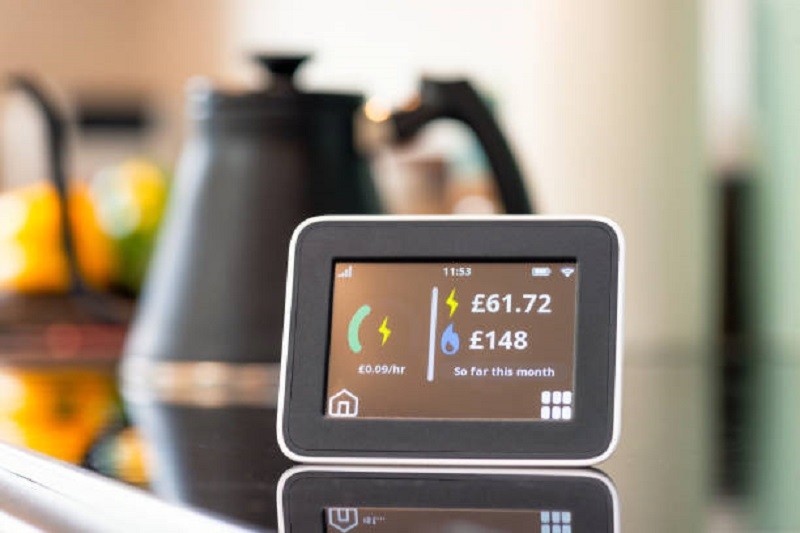Smart meters are cutting-edge digital devices that have emerged as a trans formative technology in the energy industry. These advanced meters offer real-time monitoring and communication capabilities, allowing users to manage their energy consumption more efficiently and utility companies to optimize energy distribution. As the world moves towards a more sustainable future, smart meters play a crucial role in empowering consumers, reducing energy wastage, and supporting the integration of renewable energy sources. This article explores the concept, functionalities, benefits, challenges, and future prospects of smart meters.
Understanding Smart Meters
A smart meter is an electronic device that measures and records energy consumption in real-time, often in intervals of an hour or less. Unlike traditional meters that require manual readings, smart meters automatically transmit data to utility companies, enabling more accurate billing and reducing the need for physical inspections. Smart meters are equipped with two-way communication capabilities, allowing them to receive and transmit data between consumers and utility providers via secure communication networks.
Functionality and Features of Smart Meters
2.1 Real-time Monitoring: One of the primary features of smart meters is their ability to provide real-time energy consumption data. Consumers can access this information through user-friendly interfaces, such as web portals or mobile apps, empowering them to make informed decisions about their energy usage.
2.2 Time-of-Use Pricing: Smart meters enable time-of-use pricing, where the cost of electricity varies based on the time of day. Consumers can adjust their energy consumption patterns to take advantage of lower rates during off-peak hours, promoting energy efficiency.
2.3 Remote Connectivity: Smart meters facilitate seamless communication between consumers and utility companies. Utility providers can remotely access data, identify potential issues, and respond more effectively to service requests without the need for physical visits.
2.4 Demand Response: Smart meters support demand response programs, allowing utility companies to encourage consumers to reduce electricity usage during peak demand periods. Incentives or rebates can be offered to those who participate, helping balance energy supply and demand.
2.5 Prepaid Electricity: Some smart meter systems enable prepaid electricity services, giving consumers greater control over their energy expenses and preventing unexpected utility bills.
2.6 Integration with Smart Grids: Smart meters play a crucial role in smart grid initiatives, supporting bidirectional communication between consumers and power providers. This integration fosters more efficient energy distribution and facilitates the integration of renewable energy sources.
Benefits of Smart Meters
3.1 Energy Consumption Awareness: Smart meters empower consumers with real-time energy data, enabling them to identify energy-intensive appliances and behaviors. This increased awareness leads to energy conservation and reduced wastage.
3.2 Accurate Billing: Smart meters eliminate the need for manual meter readings, reducing billing errors and ensuring that consumers are billed accurately based on their actual energy consumption.
3.3 Grid Management and Efficiency: Utility companies can monitor energy usage patterns and anticipate demand fluctuations more effectively with data from smart meters. This helps them optimize energy distribution, reduce system losses, and enhance overall grid efficiency.
3.4 Reduced Carbon Footprint: By promoting energy efficiency and enabling the integration of renewable energy sources, smart meters contribute to the reduction of greenhouse gas emissions and support global efforts towards sustainability.
3.5 Enhanced Customer Service: With real-time data and remote connectivity, utility companies can provide better customer service, respond faster to inquiries, and resolve issues efficiently.
3.6 Support for Renewable Energy Integration: Smart meters facilitate the integration of renewable energy sources like solar and wind into the grid by providing crucial data on energy generation and consumption patterns.
Challenges and Considerations
4.1 Data Privacy and Security: Smart meters collect sensitive energy consumption data, raising concerns about data privacy and security. Adequate measures must be in place to protect consumers’ information from unauthorized access.
4.2 Initial Cost and Installation: The deployment of smart meters requires significant upfront investment for both utility companies and consumers. However, the long-term benefits often outweigh the initial costs.
4.3 Technical Challenges: Integrating smart meters into existing infrastructure and ensuring interoperability with various systems can pose technical challenges for utility companies.
4.4 Consumer Education: Effective consumer education is essential to help users understand the benefits and functionalities of smart meters fully.
Global Adoption and Future Prospects
5.1 Global Adoption: Smart meters have seen widespread adoption across the globe, driven by the increasing demand for energy efficiency, sustainability, and improved grid management.
5.2 Regulatory Support: Governments and regulatory bodies worldwide are encouraging the deployment of smart meters through policy incentives and mandates.
5.3 Future Prospects: The evolution of smart meter technology will continue to enhance functionalities, data analytics, and integration with emerging technologies like the Internet of Things (IoT) and artificial intelligence (AI).
Conclusion
Smart meters represent a significant advancement in energy management, offering consumers real-time data, remote connectivity, and the ability to optimize their energy consumption. By facilitating demand response, promoting renewable energy integration, and enhancing grid efficiency, smart meters are key players in the transition towards a more sustainable energy future. While challenges exist, the numerous benefits of smart meters outweigh the initial costs, making them an essential component in achieving global energy conservation and sustainability goals. As technology continues to evolve, smart meters will play an increasingly critical role in shaping the energy landscape and supporting the development of smart and sustainable cities.



